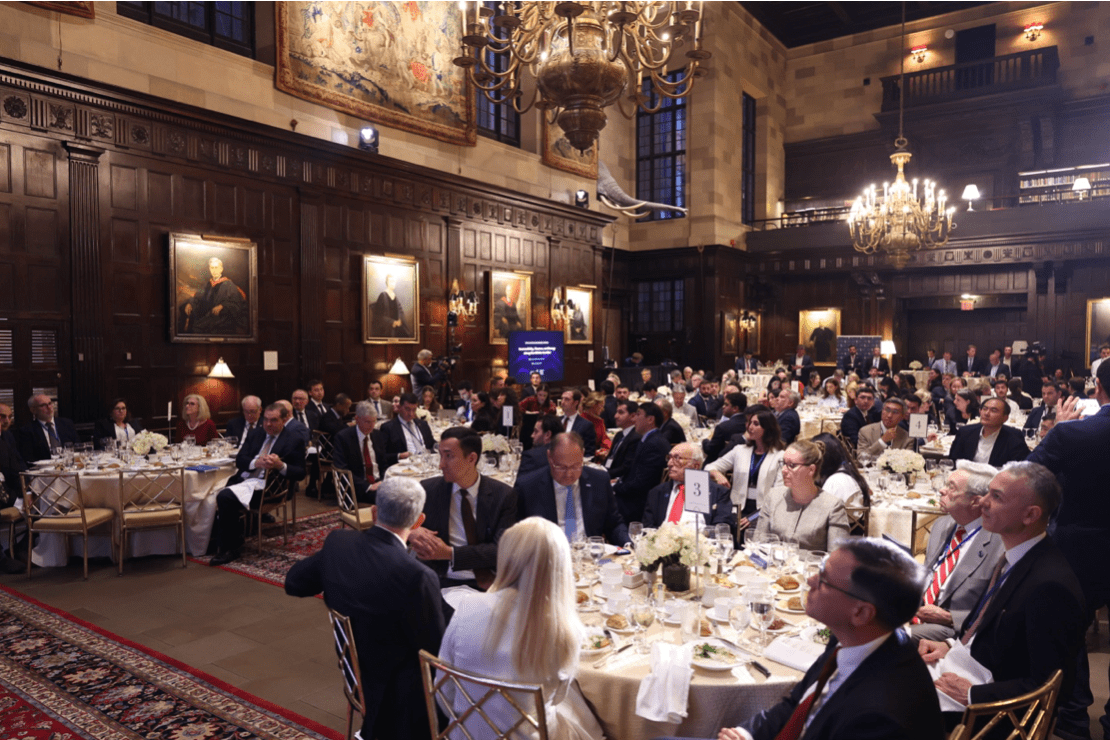Caspian Policy Center Hosts 6th Annual Business Forum in New York
Recent Articles
Author: Caspian Policy Center
09/25/2025
New York, NY, September 23 – Today, the Caspian Policy Center (CPC) held the sixth annual Caspian Business Forum in New York in partnership with the embassies of the Caspian Region. The event brought together key stakeholders from the United States and the Caspian Region to discuss and strategize emerging business and energy landscape across the South Caucasus and Central Asia, with a focus on growing regional connectivity and finance.
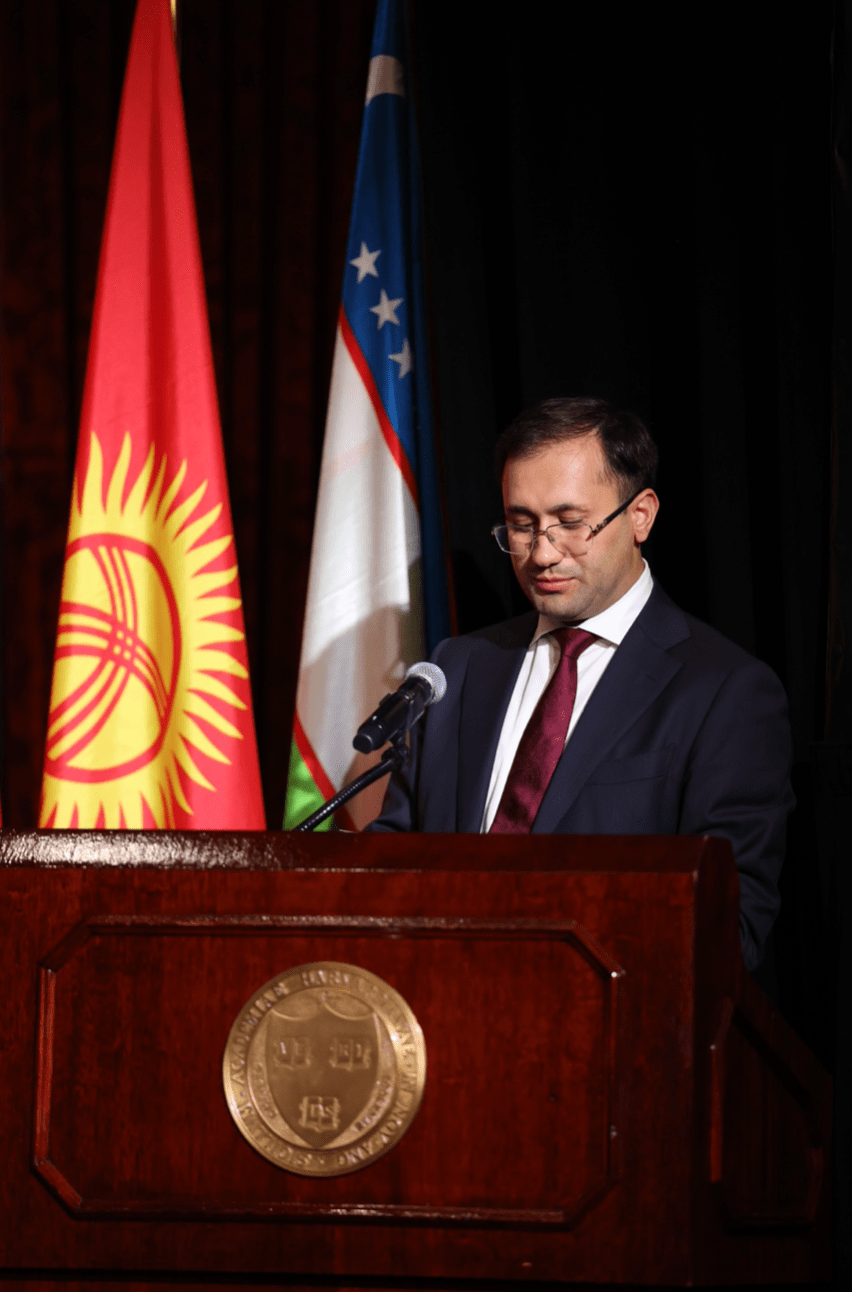 CPC President Efgan Nifti
CPC President Efgan Nifti
Efgan Nifti, President of the Caspian Policy Center, gave opening remarks outlining the remarkable developments that have taken place in the Caspian region in the last year. Nifti began by highlighting how the historic signing of a peace agreement between Armenia and Azerbaijan, witnessed by President Donald Trump, can serve to unlock the vast potential of the South Caucasus and the wider Caspian region.
“The agreement between Armenia and Azerbaijan, mediated with support from the United States, represents not only a breakthrough for political stability, but also a new era for economic connectivity. With the launch of the Trump International Route for Peace and Prosperity, or Zangezur Corridor, the South Caucasus will be more integrated than ever before. This corridor has the potential to cut freight times by up to 40 percent, boost volumes to 15 million tons, and generate transformative growth—including a projected 30 percent increase in Armenia’s GDP within two years and sustained growth in Azerbaijan’s non-oil economy,” Nifti stated.
The CPC President highlighted the growing importance of transport connectivity in the Capian region through the projects such as the Middle Corridor. “The Middle Corridor continues to emerge as a vital artery linking Asia and Europe, and what was once a secondary route has become indispensable over the last few years, particularly as Russian routes are hampered by sanctions and maritime trade is constricted by hostilities in the Middle East,” Nifti said.
Nifti also shed light on the United States’ growing engagement in the Caspian region, both at the business and governmental levels: “Earlier this year, ExxonMobil signed an agreement with Azerbaijan’s SOCAR to expand onshore oil and gas exploration and production. Chevron announced a $48 billion expansion of the Tengiz oilfield in Kazakhstan—one of the world’s largest energy projects, and we are seeing other companies making similar investments. Meanwhile, earlier this month, Washington committed an initial $145 million to the TRIPP corridor—an important down payment on a future of enhanced connectivity and prosperity.”
He noted that these changes are driving increased regional cooperation and opening up lucrative business opportunities that were previously unimaginable.
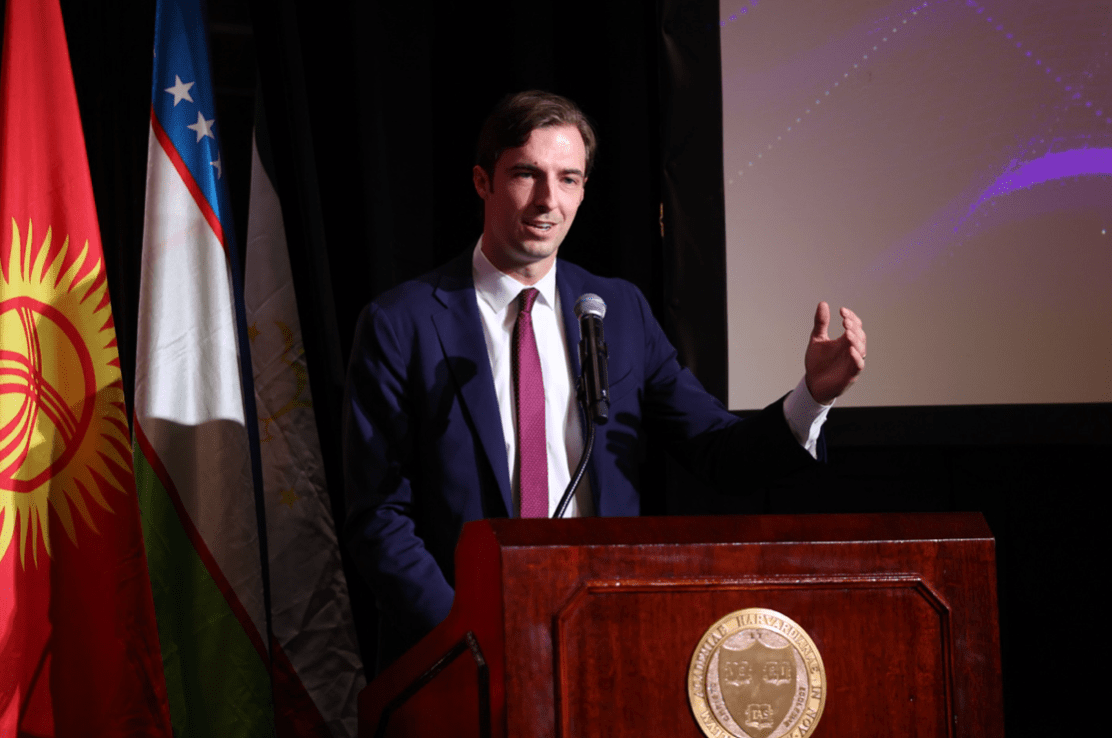 Senior Advisor to Deputy Secretary of State Caleb Orr
Senior Advisor to Deputy Secretary of State Caleb Orr
The first keynote speaker was to be Deputy Secretary of State Christopher Landau. Due to a last-minute change, his remarks were delivered by his Senior Advisor, Caleb Orr. Commenting on the importance of the broader Caspian region for U.S. foreign policy, Orr made a point that, “The broader Caspian region, including the South Caucasus and Central Asia, really is a focal point for U.S. foreign policy and strategy.” He also added that “this is not a short-term point of interest, it is a long-term point of emphasis, and it’s something that the U.S. sees as in our strategic interest, to invest in and to build off of for many years to come.”
He went on to highlight the importance of the peace agreement between Armenia and Azerbaijan, witnessed by President Trump. “President Trump’s historic peace agreement with Azerbaijan and Armenia shows the diplomatic investment that the Trump administration is placing in the region, and we think that a true pace dividend that can come about as a result of that agreement will be good for the region as a whole,” Orr stated.
Speaking on the Middle Corridor, Orr added that “by avoiding the routes North through Russia and South through Iran, the Middle Corridor promises to be a revolutionary change in how commerce transits the region and is able to access the West in Europe and the U.S. TRIPP is a true example of how peace creates the conditions for trade, and how trade can then, in turn, cement peace and stability.”
Orr concluded his keynote remarks by adding that “the Trump Route for International for Peace and Prosperity (TRIPP) and our C5+1 cooperation create a real chance to turn peace intro prosperity.”
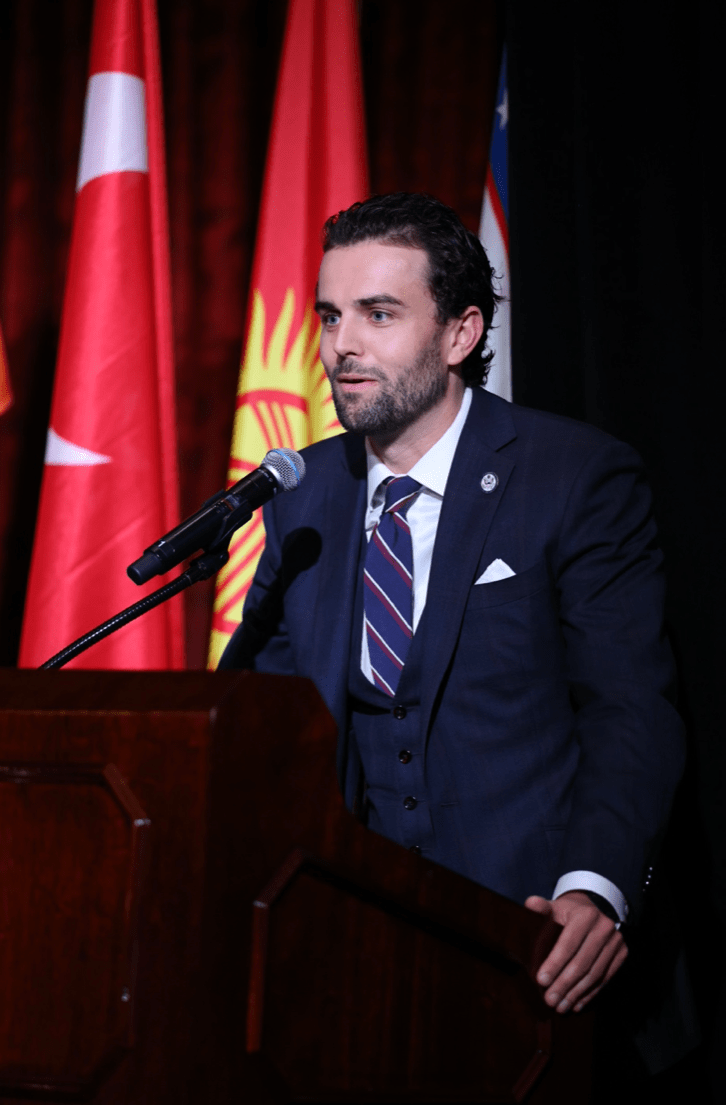
Head of Investments for DFC Conor Coleman
The second keynote address was provided by Conor Coleman, Head of Investments at the U.S. International Development Finance Corporation (DFC). In this line, Coleman spoke on the importance of Trans-Caspian trade for international markets, and what the United States is doing to support its development. “The Caspian Corridor is a key area of focus for the U.S. government from a foreign policy perspective. Our work builds on a long U.S. history of supporting the economic development across Central Asia,” Coleman said.
“DFC is working to build secure, strategic investment corridors and economic zones –obviously, this aligns closely with the growing Middle Corridor,” Coleman noted.
Coleman also stressed the strategic potential created by the peace agreement between Armenia and Azerbaijan, adding: “The recent historic peace framework between Armenia and Azerbaijan is ushering in a new era that holds so much promise for increasing security and economic growth in the region.”
The next panel featured keynote addresses from high-level representatives from the Caspian region and was moderated by Ambassador (ret.) Richard Hoagland, Chairman of the CPC Board. Speakers included: Hikmet Hajiyev, Assistant of the President of Azerbaijan; Magzum Mirzagaliyev, Advisor to the President of Kazakhstan; Öztürk Selvitop, Director General for Foreign Relations Department of the Ministry of Energy and Natural Resources of Türkiye; and Lasha Darsalia, Deputy Minister of Foreign Affairs of Georgia.
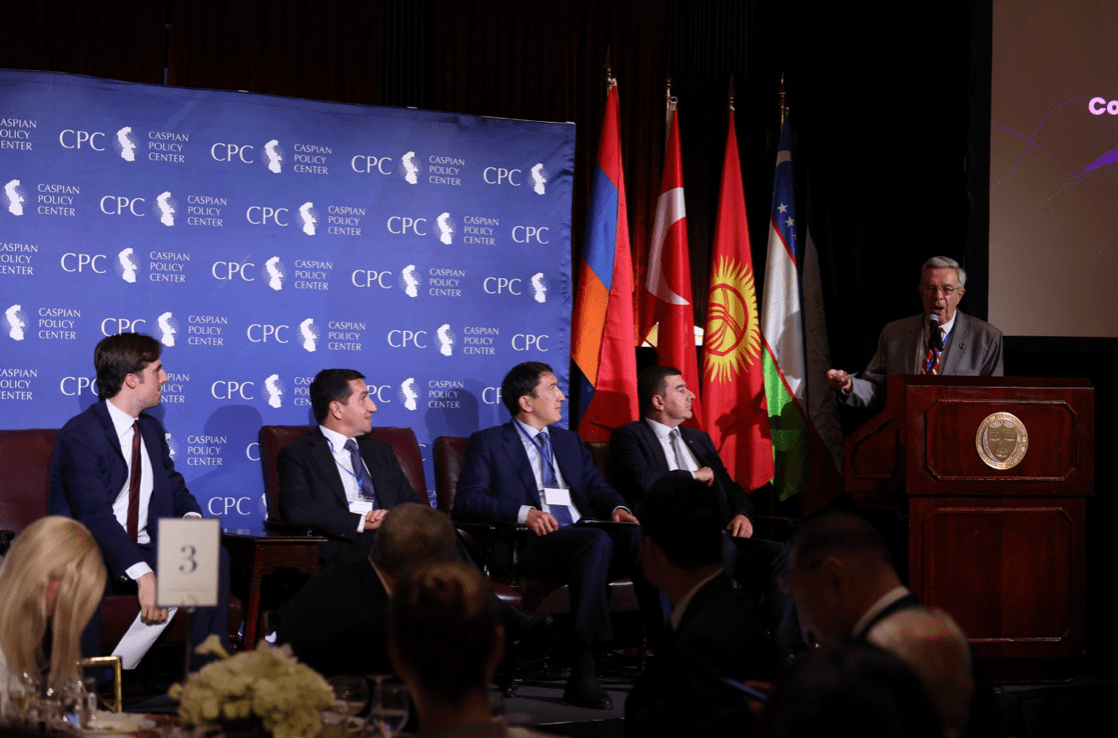
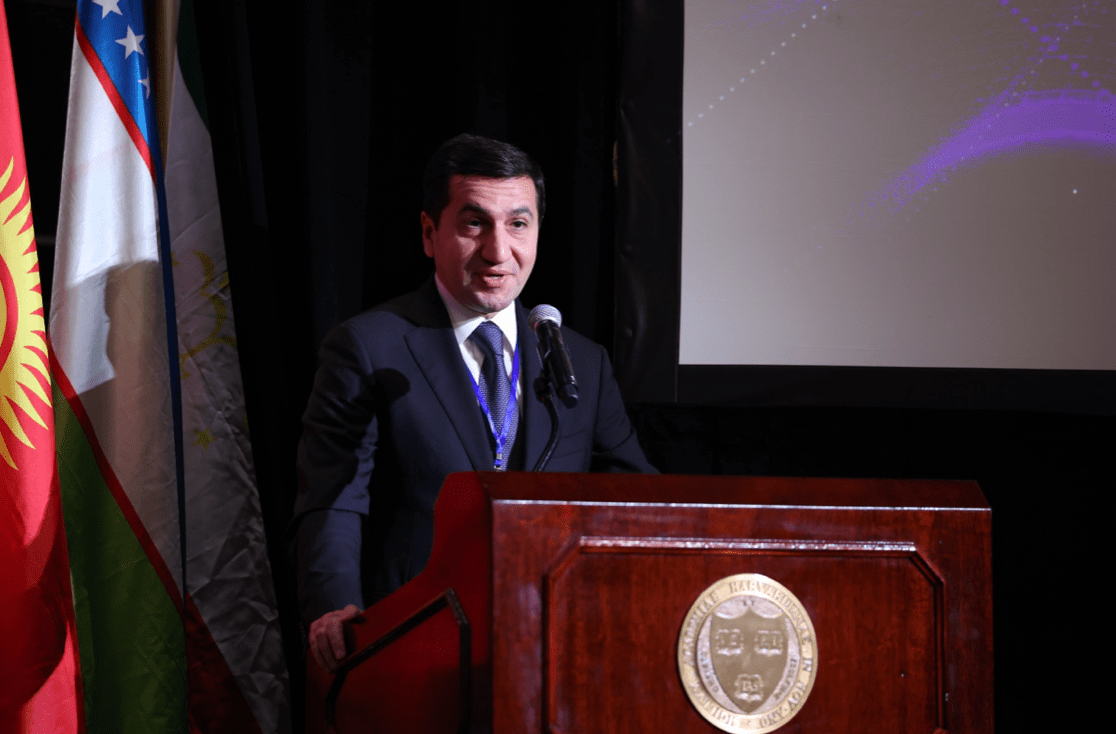 Assistant of the President of Azerbaijan Hikmet Hajiyev
Assistant of the President of Azerbaijan Hikmet Hajiyev
Hikmet Hajiyev, Assistant of the President of Azerbaijan, delivered a letter written by President Ilham Aliyev to the participants of the 6th Caspian Business Forum.
The letter highlighted the importance of the Middle Corridor as a strategic project providing a reliable and secure route connecting Europe and Asia through the Caspian Sea, and “serving as the shortest and most efficient pathway for cargo transportation from Asia to Europe and back.”
“Today, we can proudly say that, thanks to Azerbaijan’s long-term vision and tireless efforts, a major project like the Middle Corridor, which provides better synergy between Asia and Europe, has become a reality,” the letter further read. It was also noted that over the past three years, cargo shipments along the Middle Corridor through Azerbaijan have grown by approximately 90 percent, while transit times have been significantly shortened. Projections indicate that by 2030, the freight capacity of the Middle Corridor will triple compared to 2021, with transit times expected to be cut in half.
In the letter, President Aliyev also mentioned the TRIPP initiative established at the August 8 summit between Armenia and Azerbaijan: “I am sure that TRIPP, to become the next crucial segment of the Middle Corridor, will serve as a key transport link connecting Asia and Europe, expanding the transit capacity for international cargo shipments, and contributing to the prosperity of regional countries as well as their integration into global supply chains.”
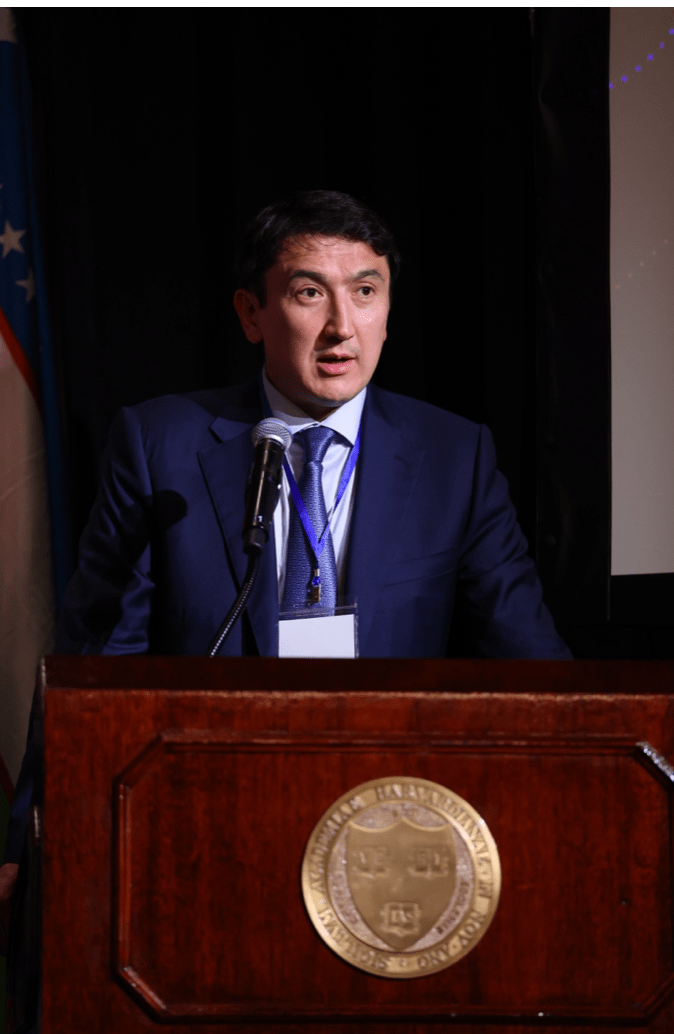
Advisor to the President of Kazakhstan Magzum Mizagaliyev
Magzum Mirzagaliyev, Advisor to the President of Kazakhstan, stressed the importance of Kazakhstan’s energy cooperation with the United States, noting: “The energy sector is the cornerstone of our economic and bilateral relationship with the United States...We align with U.S. energy priorities.”
“On average, 24 percent of U.S. uranium imports originate from Kazakhstan. And we are willing to strengthen our role as a trusted and reliable partner of the U.S. in nuclear energy,” Mirzagaliyev stated.
Mirzagaliyev also highlighted how the Middle Corridor is rapidly becoming one of the main international trade routes, and the Trump Route for International Peace and Prosperity opens new possibilities for regional cooperation.
“We welcome the TRIPP initiative and we would like to participate in the implementation of the Zangezur corridor to strengthen connectivity along the Middle Corridor,” he said.
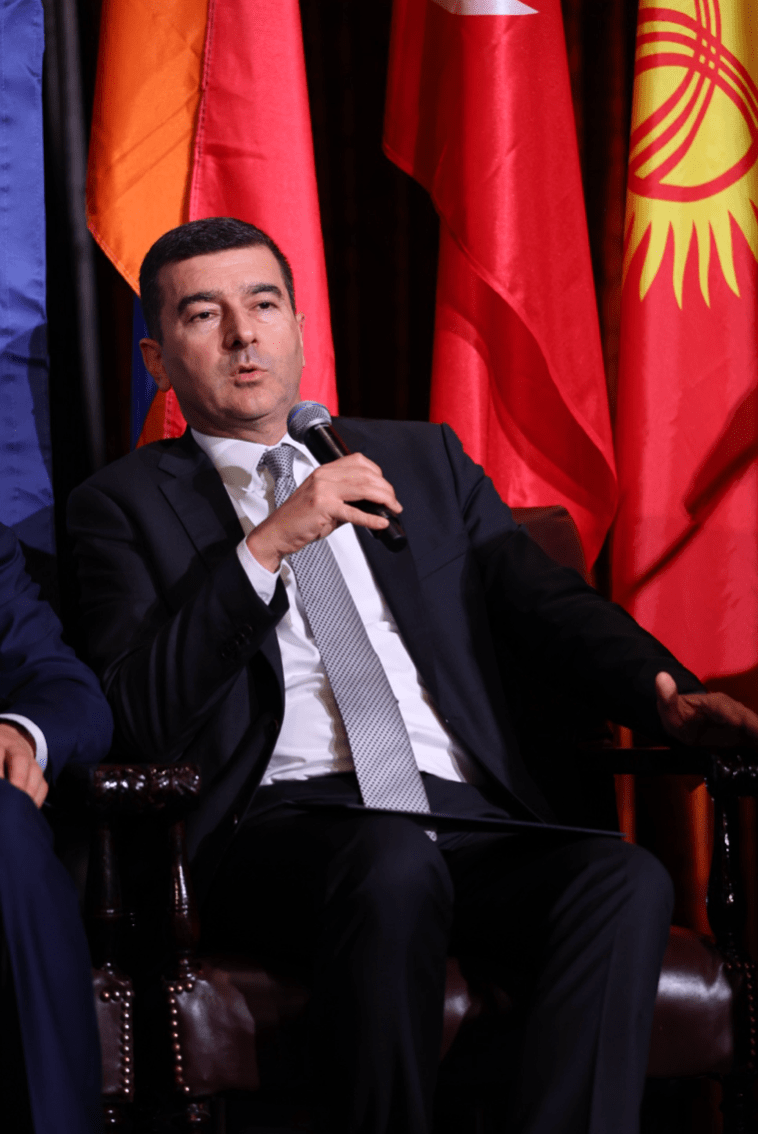 Director General Öztürk Selvitop
Director General Öztürk Selvitop
Öztürk Selvitop, Director General for Foreign Relations Department of the Ministry of Energy and Natural Resources of Türkiye, spoke on Türkiye’s energy strategy and how it focuses on increasing renewable energy sources, aiming to quadruple wind and solar capacity to 33 gigawatts in 10 years. In this regard, Selvitop specifically mentioned the Green electricity transmission corridor signed between Azerbaijan, Georgia, Türkiye and Bulgaria.
Commenting on Türkiye’s traditional energy sources, Selvitop noted: “We are serving as a natural gas trading hub. We are trying to bring more gas to the region, for both security of supply for Türkiye and for the region.” He added that Türkiye is actively pursuing diversification of its natural gas sources, noting in particular that imports from Turkmenistan began in March.
Highlighting the importance of financing and support from international financial institutions such as the DFC, Selvitop underscored the need to develop new business models and attract fresh investments.
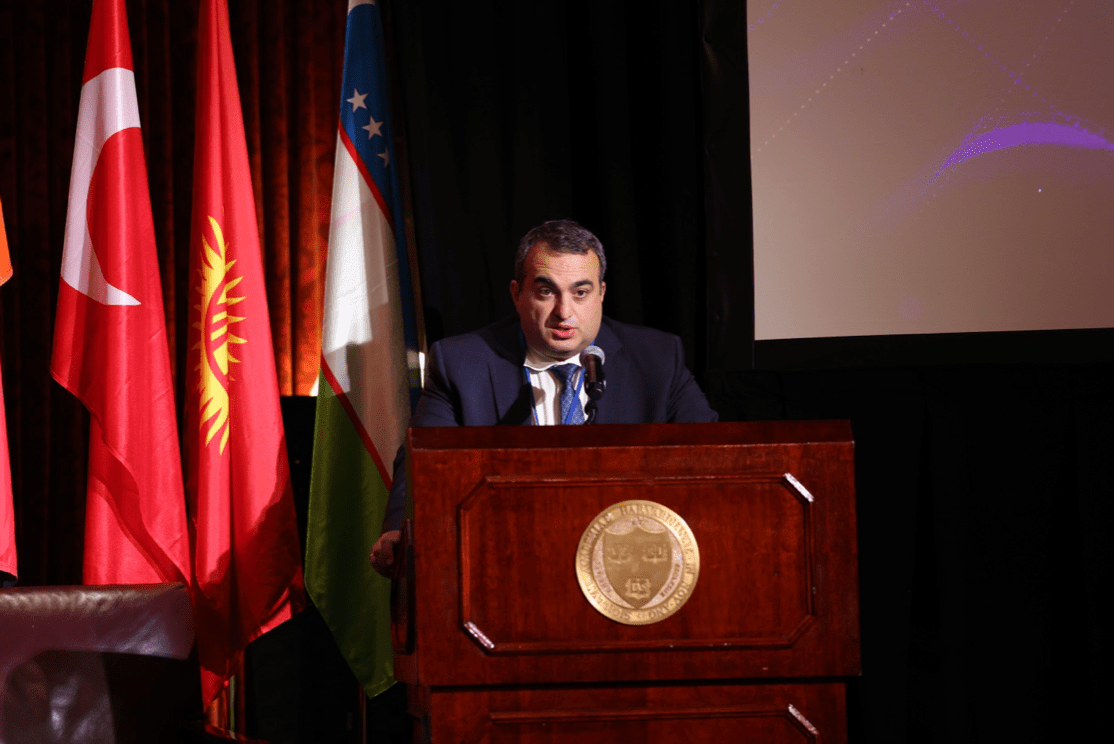 Photo of Deputy Foreign Minister Lasha Darsalia
Photo of Deputy Foreign Minister Lasha Darsalia
Lasha Darsalia, Deputy Minister of Foreign Affairs of Georgia, discussed the growing importance of transport connectivity in the region through the projects such as the Middle Corridor. “The Middle Corridor represents not just an alternative, but a vital complement to existing transit routes,” Darsalia said.
“The Baku-Tbilisi-Kars railway and the Anaklia Deep Sea Port are all parts of our mission for investing in connectivity. But connectivity is not only about the physical infrastructure – it is also about collaboration, harmonization, custom efficiency, and digital integration,” he noted.
Darsalia also shed light on the important work that Georgia is doing to attract investment, adding: “Georgia is not just a transit country, it is an investment destination, combatting corruption, creating a business-friendly tax environment for the companies engaged in the region.”
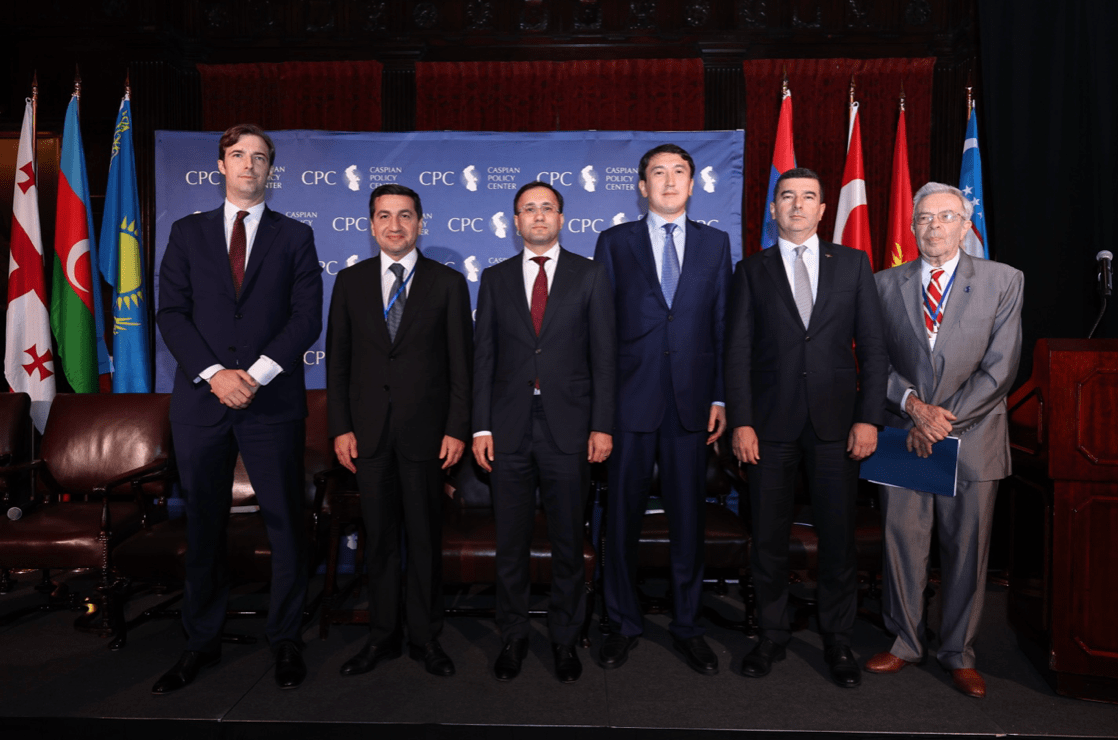 Senior Ministerial Representative(s) from the Trans-Caspian Region, including Azerbaijan, Georgia, Kazakhstan, and Türkiye.
Senior Ministerial Representative(s) from the Trans-Caspian Region, including Azerbaijan, Georgia, Kazakhstan, and Türkiye.
The Forum’s second panel, “Critical Minerals—Solving Supply Chain Challenges,” focused on how the United States is increasingly turning to resource-rich regions like the South Caucasus, Central Asia, and Ukraine as it faces mounting pressure to secure stable access to critical minerals and rare earth elements. Moderated by Dr. Marsha McGraw-Olive, Caspian Policy Board Member, the discussion included insights from Michael Cofield, Senior Attorney-Advisor at the Commercial Law Development Program (CLDP); Orkhan Mammadov, Chairman of the Management Board of the Small and Medium Business Development Agency (KOBİA) of the Republic of Azerbaijan; Helaina Matza, Chief Strategic Development Officer at TechMet Ltd; and Laura Brank, Partner at Dechert LLP.
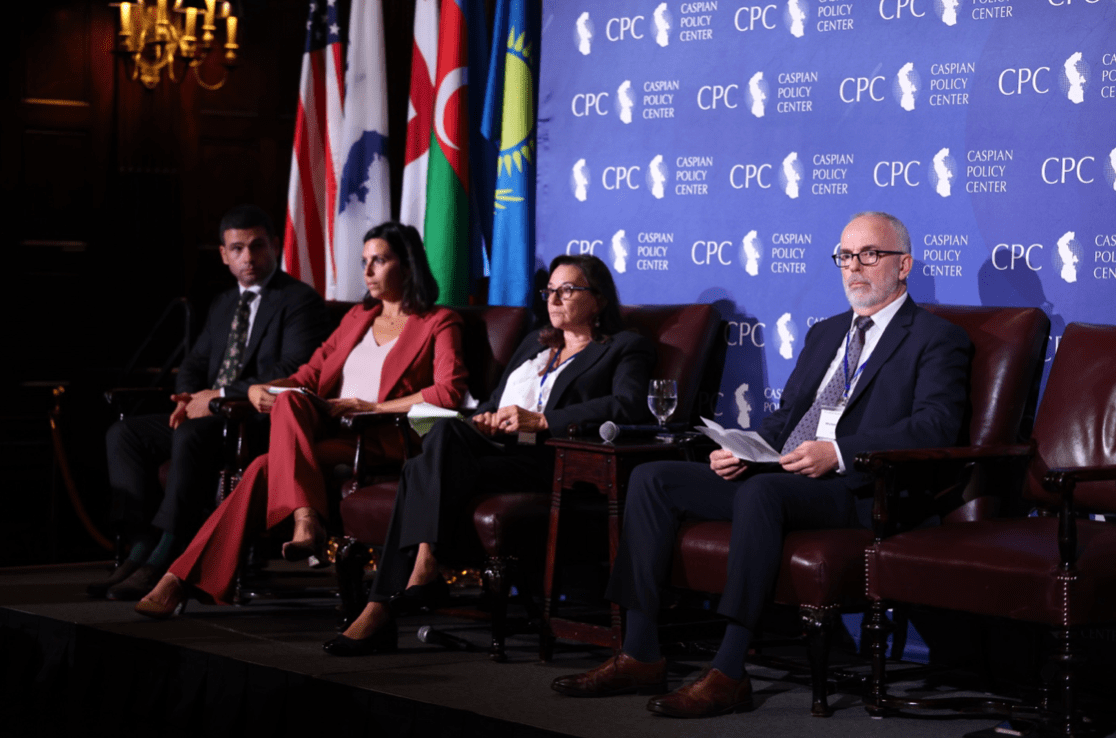
Panelists highlighted the increasing U.S. focus on securing reliable access to critical minerals and rare earth elements—resources abundant in the Caspian region—by enhancing supply-chain resilience through deeper partnerships with the South Caucasus and Central Asia. Speakers also addressed the policies adopted by regional governments to foster business-friendly environments, emphasizing their importance in attracting and sustaining investment.
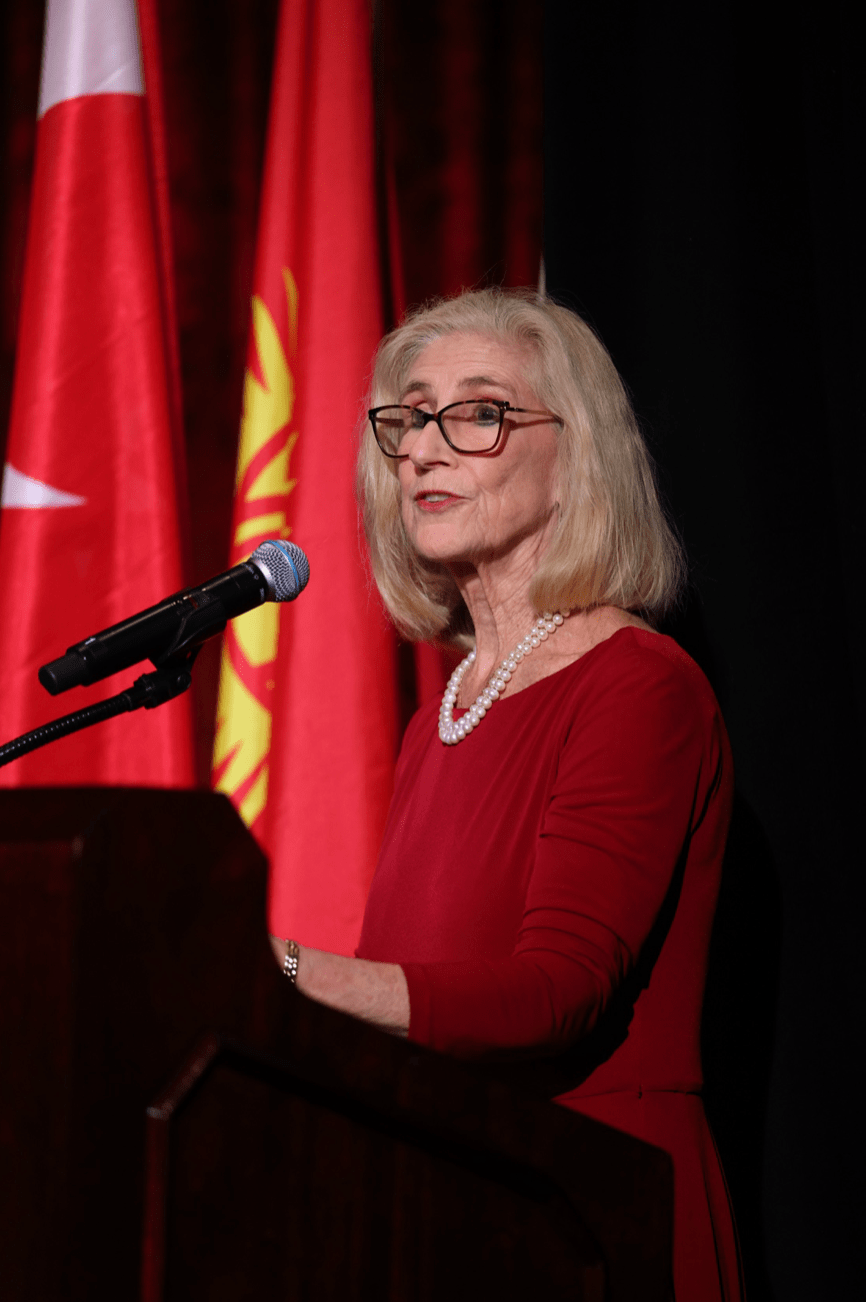 CPC Board Member Dr. Marsha McGraw Olive
CPC Board Member Dr. Marsha McGraw Olive
Moderator of the panel and CPC Board Member Dr. Marsha McGraw Olive kicked off the discussion by highlighting the four necessities for addressing supply-chain resilience challenges in the region: investor confidence; bankable projects; extensive upgrades in energy access; and transport and logistics to reach the market.
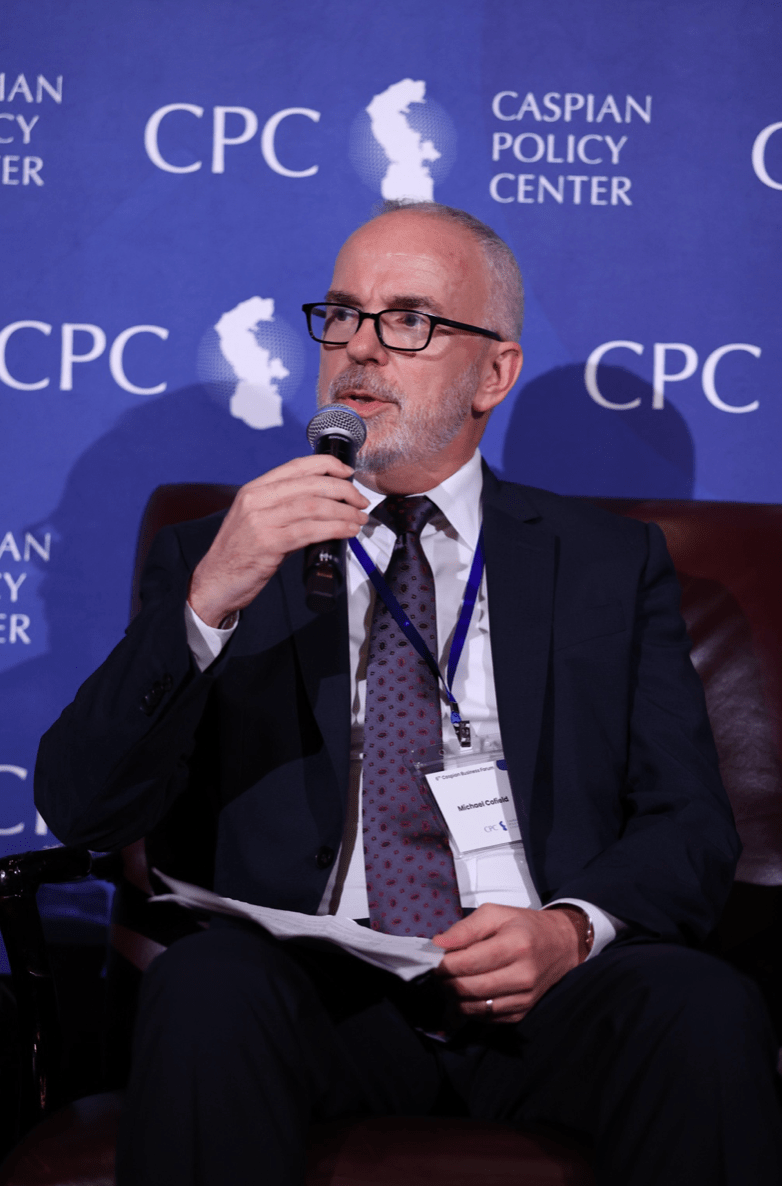 Senior Attorney-Advisor Michael Cofield
Senior Attorney-Advisor Michael Cofield
Michael Cofield, Senior Attorney-Advisor at the Commercial Law Development Program (CLDP), picked up on the importance of confidence-building measures necessary for regional governments to implement in order to attract further investments from the U.S. “U.S. and Western businesses need confidence that projects they are involved in will not be misappropriated by malign actors or others,” said Cofield.
Cofield then added that there is a real opportunity for partnership between the U.S. and the Caspian region: “This part of the world has waited for years to see more investment from the U.S. government and partners. There were many times over the past 10 years discussing the possibilities of the Middle Corridor. Now it is becoming a reality.”
Using the TRIPP initiative as an example, Cofield noted: “The TRIPP speaks for itself - the enthusiasm in the region is palpable, and the (Trump) administration has made its mark.”
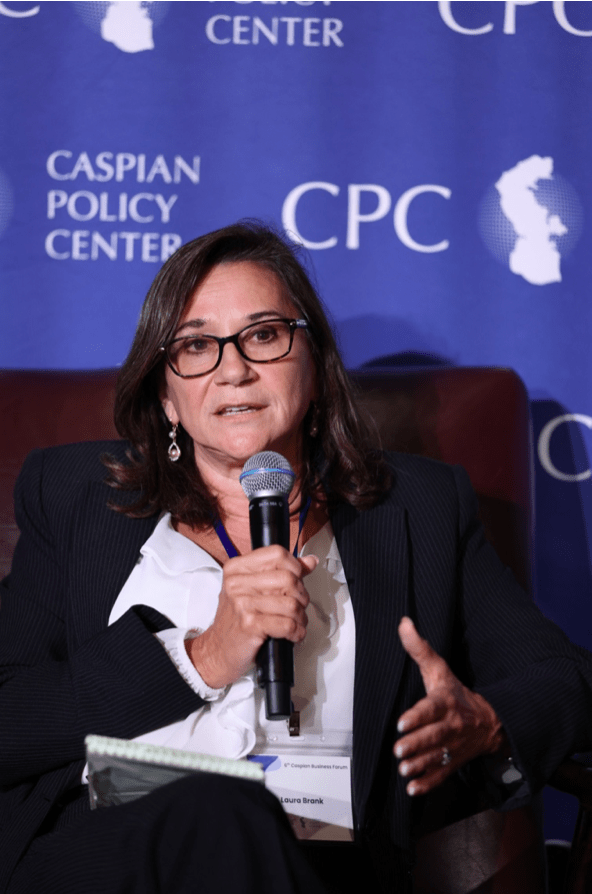
Laura Brank
Laura Brank, Partner at Dechert LLP, spoke on the increasing commercial bargaining power that Central Asian states have started to enjoy over the past few years. “I would say that with respect to Central Asia in the early days of the breakup of the Soviet Union, these countries did not have strong negotiating power. But the dynamic has really changed now, and there needs to be an alignment of interest,” Brank said. She also underlined that there has been a great deal of progress in the region in respect to the “laws on the books.”
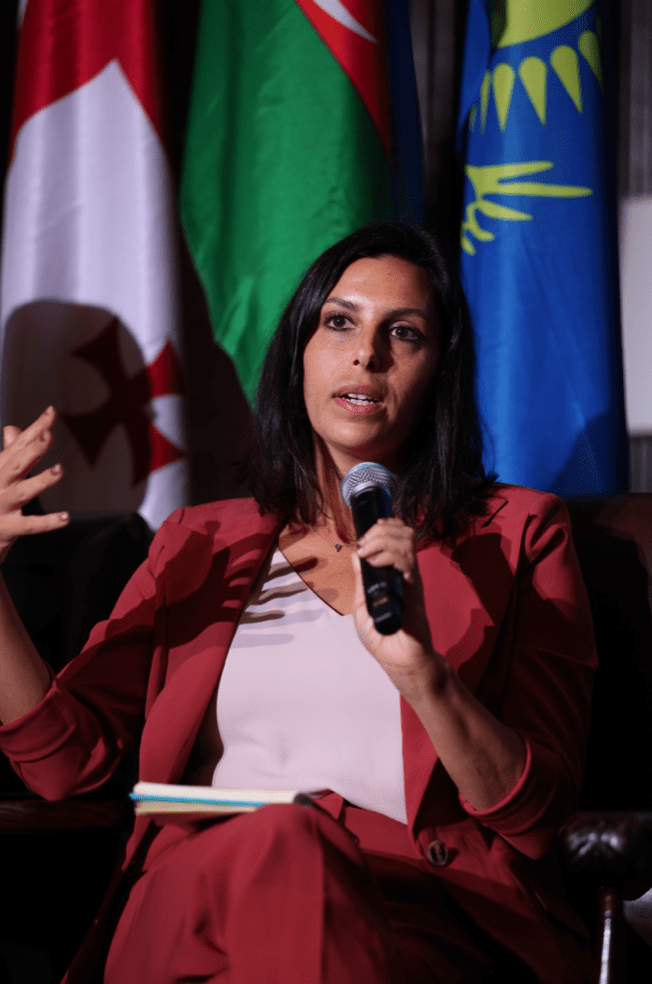
Helaina Matza
Helaina Matza, Chief Strategic Development Officer at TechMet Ltd, a U.S.-government-backed critical minerals investment firm, spoke about the numerous opportunities for investment that TechMet has identified in the Caspian region, particularly with regards to building strategic partnerships and working with sovereign lenders. She said: “We have been looking at market entry in the region. We invest all across the value chain, so, not just on the production side...There are several opportunities that we see in the Caspian region.”
“The ability to forge strategic partnerships – in this region’s case, the ability to work closely with the state-owned entities in a clear and transparent way, and how those GED structures work, but also with the sovereign lenders within the region, the whole ecosystem around what can make an investment stick, and how those roles and responsibilities are parlayed up, are really key elements of what makes an investment in the critical mineral sector ultimately attractive,” Matza added.
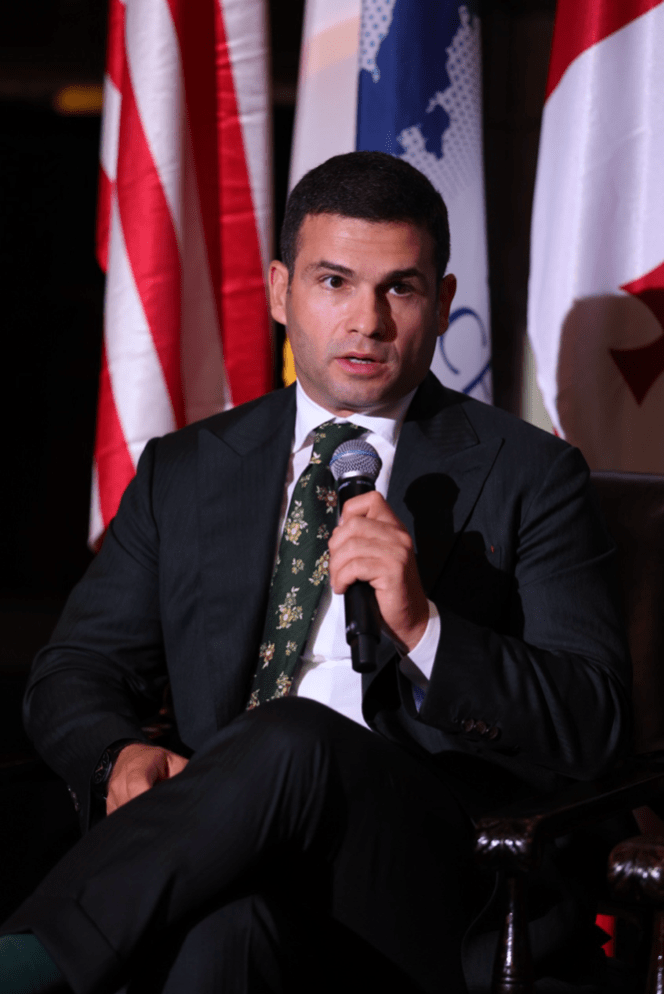
Orkhan Mammadov
Orkhan Mammadov, Chairman of the Management Board of the Small and Medium Business Development Agency (KOBİA) of the Republic of Azerbaijan, highlighted Azerbaijan’s attractiveness as a destination for foreign direct investment (FDI), noting that Azerbaijan was ranked seventh globally in FDI potential for last year by the FDI Intelligence publication of the Financial Times.
Mammadov also highlighted the key role KOBIA plays in supporting investors and bringing new businesses into Azerbaijan. “KOBIA is among the key players to support investors and business as we’re in charge to issue an investment promotion certificate, providing different physical and customs exemption for a period of seven years,” Mammadov said.
Mammadov added that the resolution of the conflict between Azerbaijan and Armenia has allowed Azerbaijan to explore new critical mineral opportunities, noting that “with the liberation of the Karabakh region, we expanded the opportunity to utilize regional rich mineral resources like gold, mercury, chromite, zinc, copper, and lead.”
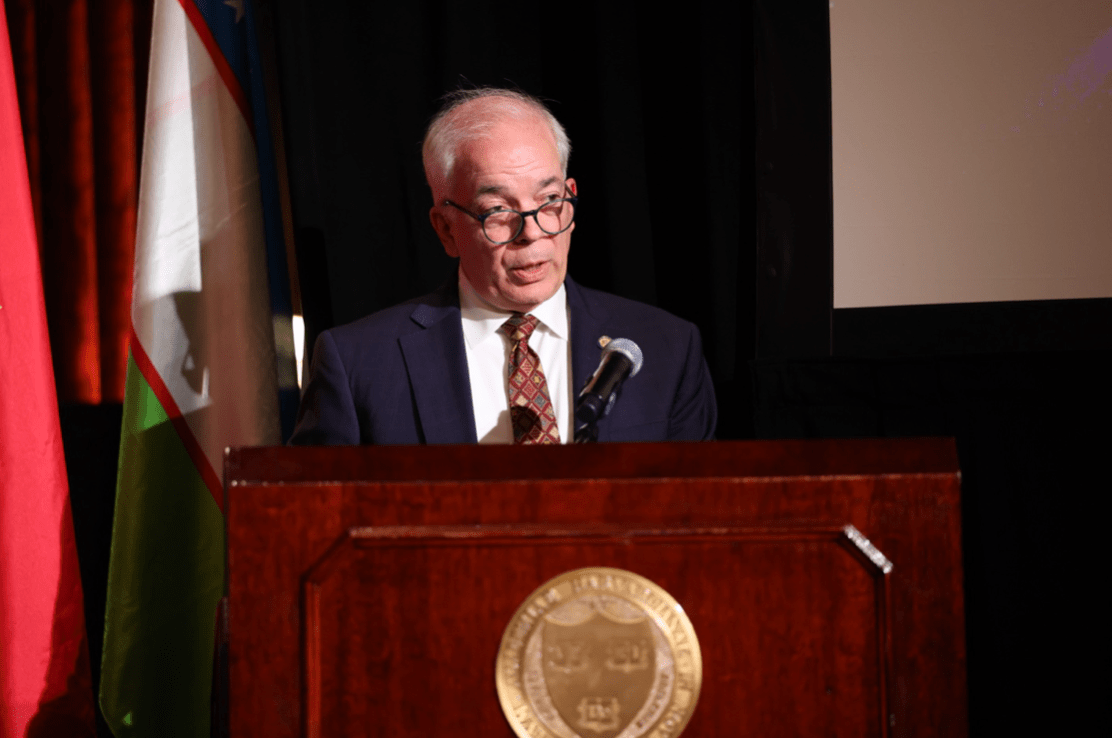 CPC Senior Fellow Dr. Eric Rudenshiold
CPC Senior Fellow Dr. Eric Rudenshiold
In his closing remarks, CPC Senior Fellow Dr. Eric Rudenshiold noted the political and economic momentum behind the Trans-Caspian Corridor. “Tonight, we have heard that the broader trans-Caspian region is a focal point of U.S. foreign policy,” said Dr. Rudenshiold, while also referring to the positive signs conveyed from the regional voices discussing the aspects of the Middle Corridor as a reliable and secure road. Highlighting the region’s transformation to an investment destination for the U.S. and other Western countries, Dr. Rudenshiold added: “The deals of the last few weeks, the (U.S.) President’s engagement with Armenia and Azerbaijan, should dispel any notion that the Trans-Caspian region is anything but central to U.S. thinking.” The 6th Caspian Business Forum underscored the region’s strategic importance, with a focus on the Middle Corridor, highlighting the need for alignment of interests among government, society, and businesses to maximize stability and growth.
